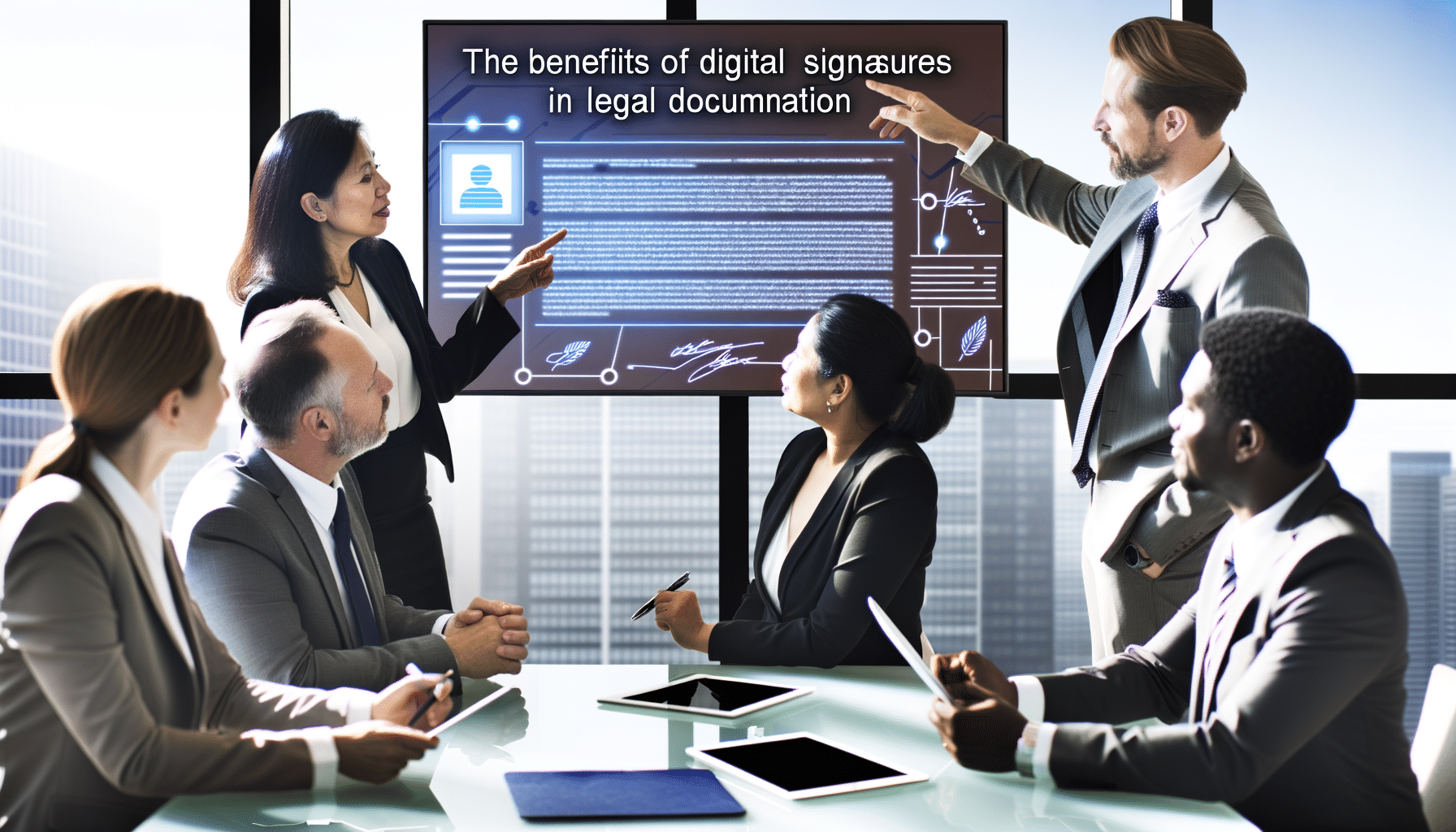- Authentication Tools
- September 6, 2024
The Benefits of Digital Signatures in Legal Documentation

One of the most transformative changes in how we manage legal documentation today is the integration of digital signatures. As I navigate the intersections of technology and record management with RecordsKeeper.AI, I’ve witnessed firsthand how digital signatures are facilitating innovation, especially in the legal sector. They don’t only digitize the signing process but enhance the entire workflow by making it more efficient and secure. Let’s delve into some notable benefits of adopting digital signatures in legal documentation.
The Rise of Digital Signatures
In an era where digital transformation dictates competitive edges, organizations need robust validation tools. The transition from traditional, ink-based signatures to digital signatures isn’t merely a trend—it’s a necessity for ensuring document integrity and authenticity in the rapidly evolving legal landscape.
Digital signatures leverage cryptographic techniques for authentication, offering distinct advantages over their traditional counterparts. They fundamentally alter how legal documents are prepared, signed, and stored, bringing forth a revolutionary shift in the legal profession.
Enhanced Security and Authenticity
The primary attraction of digital signatures is their ability to secure documents from any alterations. Using cryptography, digital signatures attach a unique fingerprint to each document, ensuring that any changes made post-signature are easily detectable. This prevents fraud and unauthorized alterations, making them reliable for critical legal documents.
Moreover, digital signatures provide authenticity by linking the signature to a known identity. Unlike a handwritten signature, which can be easily forged, digital signatures verify the signer’s identity through public key infrastructure, leaving no room for doubt.
Increased Efficiency and Cost-Effectiveness
Time is a precious commodity in legal practice. Digital signatures streamline the turnaround time for document approvals. With just a few clicks, documents can be signed and returned in real-time, eliminating delays associated with printing, mailing, and scanning physical documents.
This efficiency translates into cost savings as well. The overhead costs, such as paper, printing, storage, and courier services, are significantly reduced, enabling legal firms and departments to allocate resources more wisely.
Compliance and Legal Standing
Adhering to legal standards is paramount in the legal industry, and digital signatures are designed to meet these criteria. Recognized legally under laws like the eIDAS in Europe and the E-SIGN Act in the United States, digital signatures are equipped to handle secure transactions with diverse jurisdictional requirements.
The compliance features inherent in digital signatures help ensure adherence to regulatory standards, reducing compliance risks and simplifying the audit process. For industries regulated by stringent data privacy laws, such as healthcare with HIPAA or finance with SOX, this compliance is not merely beneficial but essential.
Improved Workflow and Document Management
Beyond the signing phase, digital signatures extend value to document management. In concert with platforms like RecordsKeeper.AI, they can automate record classification and retrieval, significantly improving workflow efficiencies.
When paired with blockchain technology, digital signatures provide an immutable, time-stamped record of the transaction—perfect for maintaining detailed audit trails and ensuring data integrity over time. Legal professionals can efficiently track document lifecycles, from creation to eventual retention or deletion, ensuring complete transparency in records management.
Scalability and Global Reach
The digital nature of these signatures enables organizations to scale operations effortlessly and engage with clients globally. Whether you’re a law firm expanding into new markets or a corporate legal department handling international transactions, digital signatures offer seamless integration across borders and platforms.
This capability ties into a larger digital ecosystem where collaboration is dynamic yet controlled. Secure data rooms can host sensitive documents awaiting digital signature, with access monitored and recorded for complete security.
Embracing the Future of Legal Documentation
The question is no longer whether to adopt digital signatures, but how quickly one can integrate them into everyday practice. By simplifying and securing processes, they allow legal professionals to focus more on strategic matters, less on procedural tasks.
As an entrepreneur fascinated by how technology continually reinvents traditional tasks, I invite those of you in the legal, finance, and compliance roles to explore opportunities with digital signatures. Their potential to drive efficiency and security in legal documentation is unparalleled. If you’re ready to transcend outdated methods and embrace a revolutionary future in recordkeeping, look no further than integrating digital signatures. I’m keen on sharing more insights and helping you navigate this transformative journey with ease and confidence.
Toshendra Sharma is the visionary founder and CEO of RecordsKeeper.AI, spearheading the fusion of AI and blockchain to redefine enterprise record management. With a groundbreaking approach to solving complex business challenges, Toshendra combines deep expertise in blockchain and artificial intelligence with an acute understanding of enterprise compliance and security needs.
Archives
- December 2024
- November 2024
- October 2024
- September 2024
- August 2024
- July 2024
- June 2024
- May 2024
- April 2024
- March 2024
- February 2024
- January 2024
- December 2023
- November 2023
- October 2023
- September 2023
- August 2023
- July 2023
- June 2023
- May 2023
- April 2023
- March 2023
- February 2023
- January 2023
- December 2022
- November 2022
- October 2022
- September 2022
- March 2019
Want to get more content like this?
Signup to directly get this type of content to your inbox!!
Latest Post
Organizing External Auditor Access
- December 22, 2024
Document Control in Manufacturing Plants
- December 21, 2024
Handling Rush Financial Report Requests
- December 20, 2024
Managing Record Access After Staff Changes
- December 19, 2024





